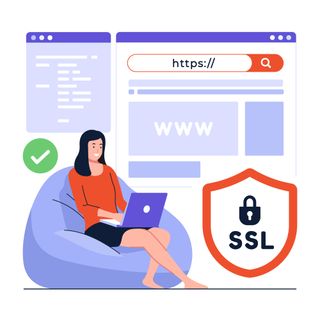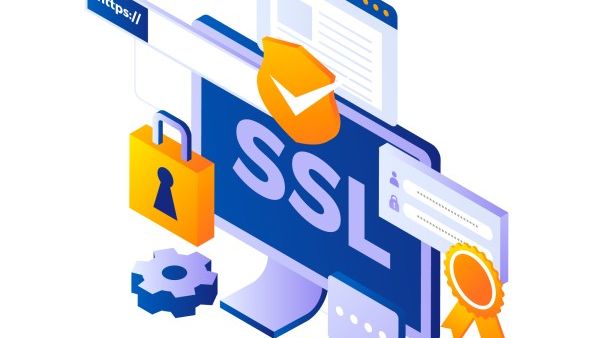As oblique as it might sound at first, domain trust is the single most important signifier of a website's value in the given search engine result pages. Search engines grade domains depending on the perceived amount of "authority" they have, which means that having a good domain authority score means you're likely getting nudged towards the very top of the search engine results. This, in turn, leads to improved conversion rates and a more positive brand and/or domain outlook, which every business ought to nurture.
A website's domain authority measures how dominant and informative it is in its given niche compared to its competitors. It is a crucial ranking factor and authoritative websites simply perform better on, say, the Google search results.
The problem, however, lies in the fact that a search engine's domain authority metric - even though it certainly is measurable - isn't a piece of information that anyone and everyone could check out. Instead, there are various online services provided by third parties that measure domain authority in different ways.
This all means that the issue of domain and page authority is substantially more complicated than it probably should be. It also means that a webmaster needs to understand what high domain authority is, and how to achieve it. To say nothing of the interrelationship between domain and page authority, and a website's outward trustworthiness.

Domain Trustworthiness and You
Reaching the very first search engine result pages is, naturally, the primary goal of any given website. Depending on your chosen area of business, niche, geographic location, or virtually any other ranking factor, you may be competing with high-authority websites that seem all but impossible to dethrone. But! How does a website improve its ranking factor to such an extent? How did authoritative websites become authoritative in the first place?
This, as you may already imagine, is no small feat. In some cases, reaching the first page of - for example - Google search results simply won't be an option for literal years, as your domain authority score gets built up through a wide variety of different ways.
As the majority of contemporary search engines simply don't reveal how their domain authority metric is calculated in the first place, webmasters, copywriters, and dedicated SEO specialists need to guess how to best tackle this challenge. To that end, it's important to make a crucial distinction between domain authority score implementations: they differ from one search engine to another, and from one third-party calculator to another.
What is Domain Authority?
Keeping the above in mind, it may become rather apparent that there are, in fact, technically two definitions of "domain authority," as it were. Or, perhaps, two realizations of the very same "domain authority score" concept.
The first aspect of a website's domain authority score is that of its actual site authority, as derived for the internal purposes of the search engines themselves. This value is, for all intents and purposes, almost entirely ethereal, as there's no way to open up a search engine's internal black box and see which aspects of a website it leverages more than the others at a given moment in time.
The second aspect of a website's domain authority score, on the other hand, is that of its estimated web page authority. Namely, third-party services such as Ahrefs, BrightEdge, and Moz offer different tools which attempt to estimate a website's domain authority score by taking into account its various aspects. This information is widely accessible and offers solid insight into ways to increase domain authority in a given situation.
As the second "version" of domain authority is derived from a potentially incomplete set of information compared to that of the targeted search engine, however, it's worth keeping in mind that these third parties might not offer a complete and total picture of a website's standing with search engines.
It is also worth pointing out that page authority is not equivalent to domain or site authority. Instead, the term "page authority" specifically refers to a specific page of your domain and its own unique authority score, the totality of which comprises domain authority in the end.
How is the domain authority score calculated?
It is self-apparent, then, that various different third parties get domain authority calculated in different ways. Depending on which of the reputable sites dealing with search engine optimisatzion you might be using, your website's domain authority depends on a whole slew of different factors. Most of them, of course, are shared between all pertinent services.
This, for example, is a non-exhaustive list of domain authority metric features that you ought to consider:
- how often your domain appears in Google search results
- how many high-quality backlinks return visitors to your domain
- how high your individual page authority scores are
Some tools that check domain authority use machine learning to bolster this process. Others might not. There's a huge amount of variance present, and no one is overly keen to reveal the internal workings of their domain authority checker.
What's crucial to understand here, then, is that the domain authority scores range that regular users have access to is simply a predictor of the given domain's ability to rank. Its actual, practical ranking factor is something else entirely, which explains why a web page can have wildly different site authority rankings when using different services to check domain authority.
Do domain authority scores make a big difference?
They absolutely can. A site's domain authority rating - the real search engine results score - is the clearest, most pointed way of telling how performant it may or may not be over a long period of time.
Naturally, most of the tools that check domain authority are reasonably good at their jobs. They will analyse whether you've got enough high-quality backlinks, if your content is up to par, and if you've got your SSL certificates in place and be able to come up with a reasonably good assumption of what to expect out of your domain.
Ideally, every webmaster should be attempting to increase domain authority across the board. In fact, if you do not increase your domain authority, you will inevitably be left behind by the more dedicated competitors, which means your site's authority is a key feature of its long-term performance on the Google search console.
What should be my domain authority scores range?
Since Google's ranking system and all the different Google ranking factors are relatively unknown and almost certainly in total flux, a website's DA score isn't the be-all, end-all of performance. All we have to go on are other sites that attempt evaluating multiple factors that Google (and, indeed, other search engines) may or may not be leveraging in the first place.
The obvious answer to this question is: your domain authority score should be as high as it can possibly get. The non-obvious caveat is that you should look at your specific niche and try to increase your domain authority to a higher level than your competitors have.
Organic Trustworthiness: How It Helps With Domain Growth
In broad terms, it is an established matter of fact that there are several organic features of a given website that contemporary search engines take into account. These are (in no particular order) the following:
- domain age
- content quality
- backlink quality
- niche
- advertising quality
- bounce rate
The list featured above is, keep in mind, admittedly non-exhaustive, but it illustrates a number of aspects that come into the equation when discussing domain authority, and which the webmaster might not have any real control over.
Certainly, it is possible to invest in high-quality backlinks to help build rapport and establish good domain authority. Similarly, it is certainly possible to keep advertising in check and attempt to build a solid library of valuable, quality content. It is decidedly not possible to affect domain age or to go against the targeted niche, however, (gambling websites, for one, may have trouble establishing domain authority) and your domain rating will reflect these facts.
Since most of these matters are features that need to be nurtured and developed over a long period of time, you might be wondering how to increase your domain authority quickly, easily, and with minimum fuss. Though the option to increase domain authority score in such a manner might sound ridiculous, having considered everything mentioned up until now, there is one crucial feature that mustn't be overlooked by the prospective webmaster.
These are - of course - the SSL certificates.

How do SSL Certificates Improve Domain Authority?
The crux of this topic and one of the easiest and simplest ways to increase your domain authority are - SSL certificates. The mere availability of a digital certificate on a given domain is enough to immediately boost domain authority, and the reason why this is the case is simple: third-party authority affirmation.
Certificate Authorities (CAs) basically vet your website to confirm whether everything about it is in the clear. Depending on how complex and/or involved the type of SSL certificate you want and/or need might be, you could be submitted to a whole slew of authority and identity checkups. SSL validation and authentication, then, confirms a few crucial facts about you and your domain:
- you are who you say you are
- you are in control of the designated domain
- your domain authority is valid
- your business details are valid
Some digital certificates even require telephone verification (mainly Extended and Organization Validation systems), and may necessitate confirming that your company has an active presence in the location it's been registered in.
Obviously, then, vetting all of this information immediately anchors your domain authority to a higher score than it was before. Up until you've implemented an SSL/TLS product, anybody could create a copycat website and trick people. Best case scenario: someone's stealing your traffic. Worst case scenario: someone's stealing your customers' data for malicious purposes. An SSL product tells your visitors that you are who you say you are, and search engines recognize this right away.
SSL/TLS: Easy Domain Authority Improvements?
It goes without saying that purchasing an SSL certificate is significantly easier, faster, and - potentially - even more affordable than the ability to secure high-quality links at a satisfying pace. Naturally, the ideal way of going about things is to do both, and to build domain authority organically to the point where others come to you for links pointing to their own domains.
However, if you need a fast domain rating boost, few things beat an SSL certificate.
As we explained above, SSL certs increase your domain authority by affixing reliable and validated real-world information to your online presence. Search services' crawler bots such as those from Google, DuckDuckGo, and Yahoo then make note of this, and automatically increase your domain authority (over time), which then leads to improved SEO and more traffic.
On top of all of that, however, there are organic domain authority improvements that come with the installation of an SSL certificate. Here's what you get as soon as your SSL is in place:
- visitors are no longer inundated with browser security warnings
- domain and business information readily accessible for anybody to check out
- access to a comprehensive suite of site seal graphics
And these are merely the most basic boons afforded with an SSL certificate. If you wish to increase your domain authority further still, high-end security solutions may feature the immediately obvious green address bar, a padlock icon, and a variety of other trustworthiness features.
How does a Site Seal help my Domain Authority?
It, of course, might not be immediately apparent how a pack of CA-provided graphics could do anything but clutter up your website. As we've said time and again, however, domain authority is a very organic feature. It depends in no small amount on your visitors, too, and the safer your visitors feel while browsing your domain, the more likely they are to stick around and - indeed - become paying customers.
The difference between a visitor that leaves your site immediately (i.e. bounce) and one that ends up using your services is immense. Not just because it has the potential of earning you revenue, but also because it tells a given search engine that you've got stellar page authority, which in turn tells it that you've also got solid domain authority.
It's self-explanatory, then, how the CAs' site seals, green address bars, padlock icons, and all the other boons affect your business. After all, is anyone very likely to use services that Google specifically warns them could be malicious and/or predatory? This is precisely what happens if you have no SSL certificate in place, and it heavily affects your domain authority.

Improved Domain Authority Leads to Improved Domain Trustworthiness
Website domain authority is one of the features that effectively spells out its success. Or lack thereof, as it were. Getting your website domain authority in order should be a crucial long-term goal, and the way to facilitate that is to remove any and all issues that contemporary crawlers could discover. Obviously, having no SSL certificate is a huge red flag, and implementing one is a crucial aspect of working on your site's search engine optimisation.
Whereas domain authority as we have discussed in this article is a fixed, calculable term that admittedly does differ from one search engine to another, and from one domain authority tool to another, domain trustworthiness is something else.
Specifically, domain trustworthiness is an organic element of integrity that your domain builds over a long period of time. Do your visitors trust you with their data? Do they come back to your domain to conduct business over and over again? Do other niche leaders ask for backlinks from your website?
Whenever you increase your domain authority score, it affects your domain trustworthiness. Ideally, a website's outward trustworthiness should never be brought into question, which is accomplished by doing the following:
- staying in business
- delivering a smooth, reliable service
- not triggering security warnings
- keeping users safe and sound
- keeping users' data safe and sound
And a variety of others. The boons that come about from approaching domain authority with total trustworthiness in mind are innumerable, but the most obvious item is certainly that of increased conversion rates - which necessarily comes up as your website ranking improves against other websites.
On Domain Trustworthiness in a Practical Sense
It should be clear by now that - while not easy - you can increase your domain authority relatively quickly and see results at a rapid pace. Getting an SSL/TLS in place is just the first step when it comes to improving domain authority, yes, but it's a crucial, unavoidable step in this day and age.
Then, once domain authority is established and recognized by Google, Yahoo, and other search services, and once other websites in the given niche make note of you as their competitor, your own website will finally be in favorable standing. Favorable standing that, naturally, leads to bolstered trustworthiness and widespread appeal.
Domain authority might be compared to a game of domino, in that sense. Webmasters are effectively forced into competing for improved domain authority if they wish to grow their business. By upgrading domain authority, they set into motion a series of events that should, ideally, lead to improved trustworthiness.
Improved trustworthiness should, in due time, reach enough of a critical mass that it begins to self-propagate and continuously improve your domain authority against any and all competitors in the niche - simply by existing. This, however, takes a long time and a lot of effort, and it's easy to fall by the wayside if domain authority isn't careful maintained in the early days of your website.
The humble first step is, then, the mere installation of an SSL/TLS certificate. For that, SSLTrust should be your go-to option.
Discussions and Comments
Click here to view and join in on any discussions and comments on this article.


